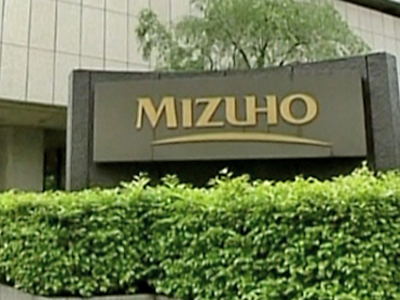
Japan’s Mizuho Financial Bank Unconcerned over New SIFI Rules

Japan’s second-largest bank, Mizuho Financial Group, is confident that it can meet additional global capital requirements without raising funds.
Mizuho’s president, Takashi Tsukamoto, told Reuters that even if the bank becomes subject to stricter global banking rules next year for institutions deemed „too big to fail,“ Mizuho could manage without capital raising.
[Takashi Tsukamoto, President, Mizuho Financial]:
„Even if we were categorized in that group, we would be able to clear hurdles by doing what we are already doing. This does not mean capital raising. We can manage by efficiently streamlining our risk assets and making further cost-cutting efforts.“
By the middle of next year, international regulators are expected to draw up a list of banks whose collapse would pose a threat to the global financial system, and those on the list could be required to boost capital further.
With the tough new bank rules known as Basel III already finalized, investors are focusing on which institutions regulators will label „Systemically Important Financial Institutions,“ or SIFIs.
The Mizuho president’s optimistic comments sent the bank’s shares up as much as 2 percent Tuesday.
Mizuho has raised more than $15 billion in two rounds of fundraising over the past two years.
Still, Mizuho is the least capitalized among Japan’s top three lenders, stoking investor concern that it may still need fresh capital.
 Foto: NTDTV
Foto: NTDTV




























vielen Dank, dass Sie unseren Kommentar-Bereich nutzen.
Bitte verzichten Sie auf Unterstellungen, Schimpfworte, aggressive Formulierungen und Werbe-Links. Solche Kommentare werden wir nicht veröffentlichen. Dies umfasst ebenso abschweifende Kommentare, die keinen konkreten Bezug zum jeweiligen Artikel haben. Viele Kommentare waren bisher schon anregend und auf die Themen bezogen. Wir bitten Sie um eine Qualität, die den Artikeln entspricht, so haben wir alle etwas davon.
Da wir die Verantwortung für jeden veröffentlichten Kommentar tragen, geben wir Kommentare erst nach einer Prüfung frei. Je nach Aufkommen kann es deswegen zu zeitlichen Verzögerungen kommen.
Ihre Epoch Times - Redaktion